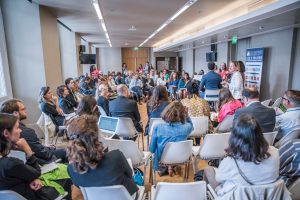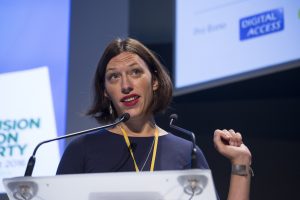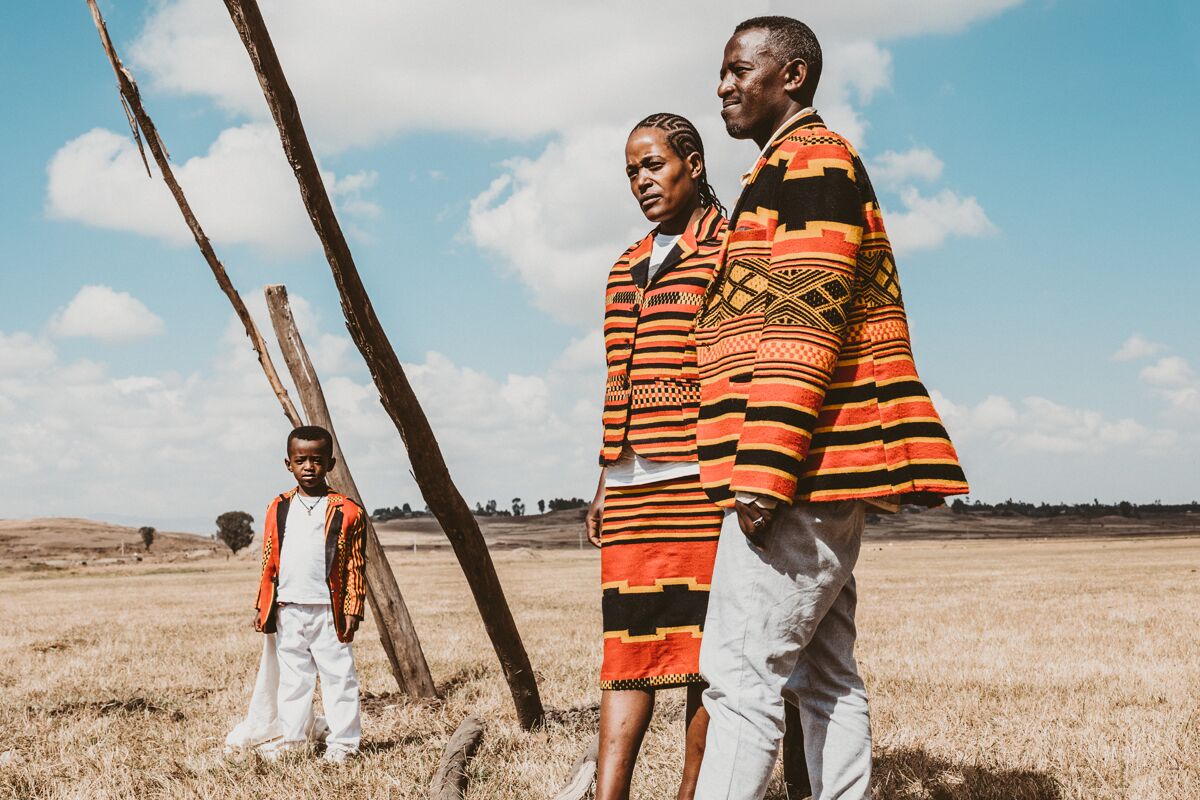Collaboration and multi-stakeholder partnerships have now become overused terms, new fashionable expressions adopted by companies, public institutions and the non-profit ecosystem. They have been presented as the answer to the demands of a growingly complex world and to the challenges of truly sustainable and universal development.
Unity is strength
In a constantly evolving world, it is essential to promote a convergent mobilisation of all stakeholders and a cross-fertilisation between the different categories of actors. It is a matter of contributing to the implementation of the Sustainable Development Goals at our respective scales and collectively, reflecting and acting together to respond to the seemingly contradictory demand for a world without poverty, and that for a carbon-free world.
Demographic growth, exponential urbanisation, global warming, wars and conflicts, terrorism, increasing global inequalities … It is in this context and in the face of these challenges that multi-actor partnerships have grown in size and numbers in the last years. Unsurprisingly, the simple sectoral solutions proposed to address these challenges have clearly failed. Indeed, silo action has for corollary a duplication of efforts, a loss of efficiency and productivity, and even power struggles in some cases.

IN THE PHOTO: Constantly evolving world.
“Alone, we go fast, together we go far”. Partnerships between a variety of actors to promote sustainable finance, technological advances, and capacity building – all of which are SDGs Targets – is a requirement for success. When it comes to the issues facing our generations and our planet, the truth is that none of us can address them alone.
Easier said than done
Back to reality. It is clear that an increasing number of NGOs and companies are tempted by the adventure of the multi-actor partnership. Nevertheless, this mode of operation remains relatively new for organisations that still experience uncertainties and risks in implementation. Gathering individuals from different organisational cultures and then nurturing a collaborative effort is a challenge in itself, and takes time.
A better understanding of the added value of multi-stakeholder partnerships is key to the success of these new modes of action. It is now necessary to go beyond the old paradigm where NGOs implement activities and services to disadvantaged populations, where private donors finance and governments regulate. NGOs must accept that multi-stakeholder partnerships go beyond the mere financial windfall; companies must recognise that multi-stakeholder partnerships are not just a response to increased stakeholder demands for social responsibility. These difficulties and obstacles are real, and explain the difficulties in turning discourses into concrete partnerships.

IN THE PHOTO: Cross-sectoral workshop. CREDIT: Convergences-Raphaël de Bengy
Despite these difficulties, recent efforts to promote public-private partnerships have demonstrated that such cooperation is not only feasible but also extremely valuable. For instance, in France, the ‘social impact bond’ launched in 2016 by the government has allowed Adie, a non-profit organisation providing microcredit to marginalized populations, to raise 1.3M€ from private investors. Under this contract, the government promises partial refund of the investment to the private parties if the social targets delineated in the contract are met.
Far from France, other cross-sectoral collaborations show that multi-stakeholder partnerships can work to produce a social impact. The Green Village project, developed by the Life Project 4 Youth Foundation, has contributed to the economic and ecological development of slums in the Manila area (Philippines). Through a partnership between local associations, businesses and government agencies, the Green Village provided work opportunities for marginalised population, promoted greener and more efficient recycling, and increased the energetic autonomy of the region.

IN THE PHOTO: Green Village – Convergences Award Laureate. CREDIT: Live Project 4 Youth
The early results of these two adventures are promising and prove that ‘unity is strength’ is not simply a motto.
Partnership: a new paradigm for successful development
The idea that corporate responsibility goes beyond the traditional notions of philanthropy is still to be fully accepted. The private sector needs to adopt a more comprehensive, sustainable and cost-effective approach, where the company’s interest in investing in development is recognised. Per capita income in developing countries is on the rise, opening up vast markets at the “bottom of the pyramid”. The creation of economic and market opportunities is also essential to contribute to the increase in incomes for the 800 million people currently living in poverty.

IN THE PHOTO: Emilie Poisson, executive director of Convergences. CREDIT: Convergences-Yann Castanier
Yet, and while markets are essential to economic growth, partnerships are becoming the practical mechanism for achieving sustainable development. From recent experiences, resilient and efficient partnerships require a combination of two elements: clarity and sharing.
Resilient partnerships are those where stakeholders have arrived at a common and explicit definition of what they mean and expect through their relationship. Efficient ones are based on sharing – skills, resources, risks, costs and/or benefits – between stakeholders. This sharing can range from a simple asset exchange to a much more complex sharing of governance, decision-making and the creation and implementation of activities. Regardless of the content of the commitment, sharing rather than transferring costs and risks is crucial.

IN THE PHOTO: Cross-sectoral workshop. CREDIT: Convergences-Raphaël de Bengy
To achieve a partnership where the multidisciplinary skills and experiences of each are in perfect synergy so that the whole is greater than the sum of its parts requires a lot of energy and voluntarism. In practical terms, this requires both the rapid and effective sharing of information, resources and experiences between fundamentally different organisations. Setting up a multi-stakeholder partnership requires patience, perseverance and leadership. But also a lot of goodwill and creativity. Finding the right combination of all these ingredients is surely difficult, but recent developments should make us hopeful that we are heading in the right direction.
 Launched in 2008, Convergences is the first platform for thought, advocacy and mobilisation in Europe to promote the Sustainable Development Goals and the development of a world “Zero Exclusion, Zero Carbon, Zero Poverty.” Its mission is to organize debates, mobilise thoughts and actions, spread good practices and encourage the co-construction of partnerships and innovative solutions. Convergences relies on more than 200 partner organizations represented within its working groups to co-organise the Convergences World Forum, which gathered more than 5000 participants every year, to write studies and publications, and to organise events throughout the year.
Launched in 2008, Convergences is the first platform for thought, advocacy and mobilisation in Europe to promote the Sustainable Development Goals and the development of a world “Zero Exclusion, Zero Carbon, Zero Poverty.” Its mission is to organize debates, mobilise thoughts and actions, spread good practices and encourage the co-construction of partnerships and innovative solutions. Convergences relies on more than 200 partner organizations represented within its working groups to co-organise the Convergences World Forum, which gathered more than 5000 participants every year, to write studies and publications, and to organise events throughout the year.
Editors note: The opinions expressed here by Impakter.com columnists are their own, not those of Impakter.com










